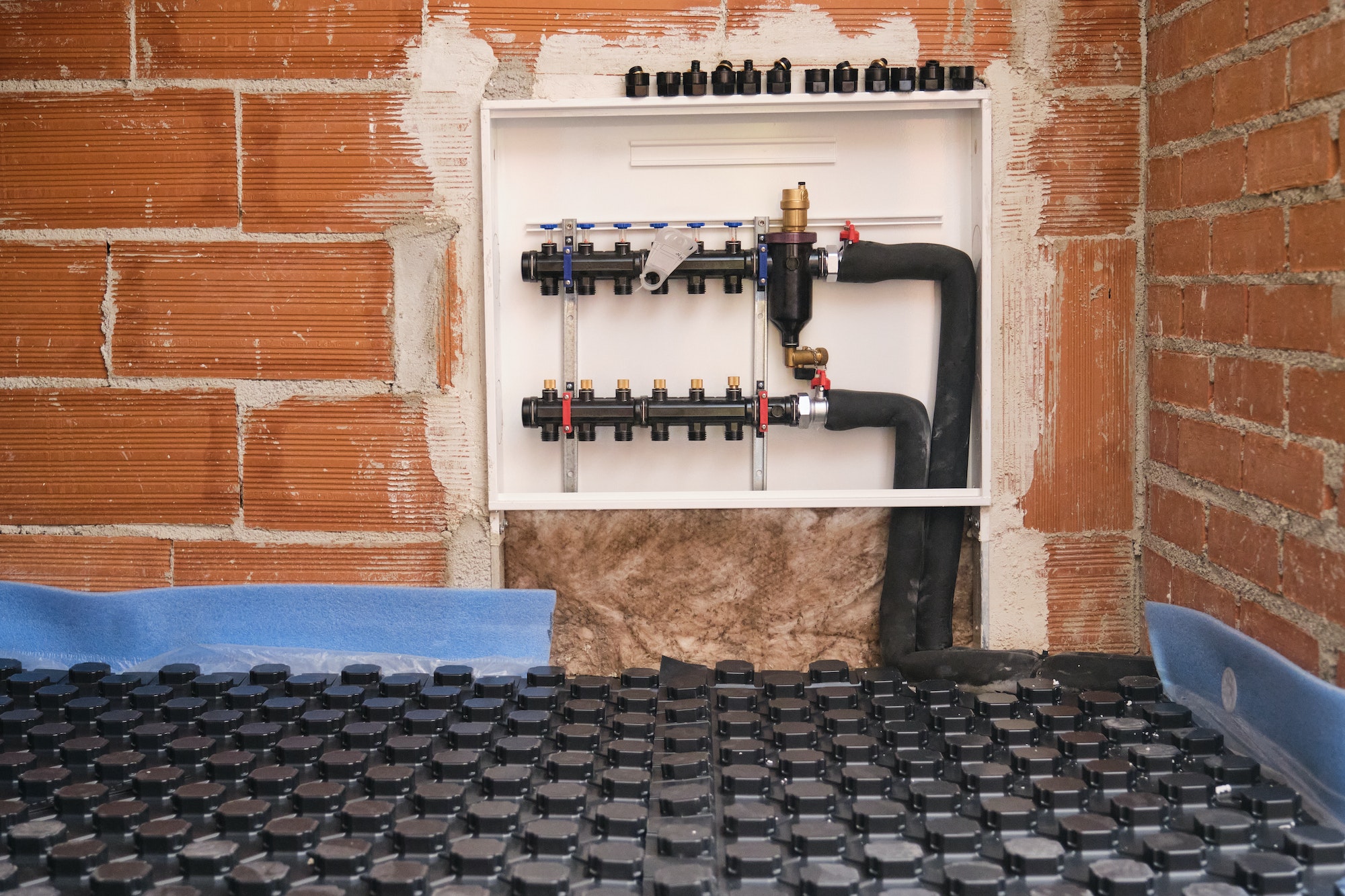In Australia, there are many ways to heat your home. Hydronic heating and gas ducted heating are two of the most popular options, but which one is more energy efficient?
When thinking about what type of heating you’ll need for your home, you’ll need to consider where you live, your budget and the matter of on-going maintenance. A local heating specialist will be able to narrow down what you need and give you the best solution for all areas.
But let’s start with some information on if hydronic or gas ducted heating is better for you. Before we can answer that question, let’s take a look at what hydronic and gas ducted heating systems actually are.

What Is hydronic heating?
Hydronic heating is a type of central heating system where heated water is circulated around the home by pumps or natural convection. The heated water travels through radiators, underfloor pipework or other types of heat exchangers to keep you warm during winter months.
Hydronic systems use hot water boilers as their source of heat, with the boiler usually connected to an external energy source such as natural gas, oil or electricity. With the level of experience needed to install hydronic heating systems, they can be more expensive upfront to install. The water makes for a more energy efficient way of heating your home.
Other than leaking, the ongoing maintenance costs for hydronic heating is typically quite low. If a leak does occur, the repair costs can be steep.
What is gas ducted heating?
Gas ducted heating (GDH) systems are another popular option for home heating in Australia. As the name suggests, these systems use a network of air ducts to distribute warm air throughout your home. The heat is generated by a central furnace, which is usually powered by natural gas or LPG. Unlike hydronic systems, GDH systems don’t require any radiators or other heat exchangers – just the series of ducts and vents that run around the home.
Gas ducted heating systems will cost less then a hydronic heating system to install, but the ongoing running costs are higher.
Is hydronic heating or gas-ducted heating more energy efficient?
The short answer; both are equally energy efficient.
When it comes to energy efficiency, hydronic heating and gas ducted heating are very similar. Both systems use the same sources of fuel – natural gas, oil or electricity – and can be fitted with energy-efficient features such as timers, thermostats and zone control valves.
What makes the difference in hydronic and gas-ducted heating is the efficiency, upfront cost and on-going maintenance.
The main difference is that hydronic systems are more efficient at distributing heat throughout your home. This makes them ideal for large open plan houses or apartments where you need to keep different areas warm at different times of day.
However, gas ducted heating is usually a cheaper option in terms of upfront costs because it doesn’t require any radiators or other heat exchangers. It also means less installation time and less disruption to your home.
Should you choose hydronic or gas-ducted heating?
When it comes to energy efficiency, hydronic heating and gas ducted heating are both great options for Australian homeowners. While hydronic heating is slightly more energy efficient, the best option for you will depend on your budget, the size of your house and the type of climate you live in.
Someone who wants a lower-cost installation cost but isn’t too concerned about on-going maintenance may sway towards ducted heating. While someone wanting low ongoing costs and the best energy efficiency may look towards hydronic heating systems.
A few key differences between hydronic and gas-ducted heating systems include:
- Hydronic systems are quieter than gas-ducted heating as there are no fans.
- Hydronic systems are more hygienic as there is no airflow to circulate dust, mould, etc.
- Gas-ducted heating is easier to create zones for different temperatures in the home.
- Gas-ducted heating provides instant heat.
- Heating and cooling systems can be combined with gas-ducted systems.

If you’re still unsure which system is more suitable for your needs, consulting a qualified specialist is the best way to go. They can assess your property, needs and budget and let you know the best solution for you.





